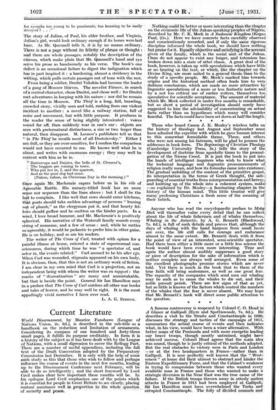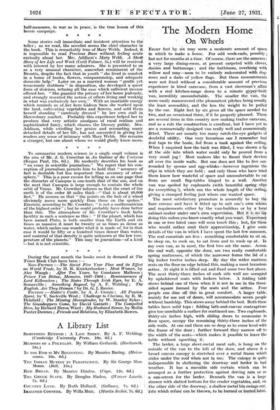A famous controversy is reopened by Colonel C. 0. Head
in A Glance at Gallipoli (Eyre and Spottiswoode, 7s. 6d.). He describes a visit to the Straits and Constantinople in 1930, discusses the strategy and tactics of the campaign of 1915, summarises the actual course of events and then indicates what, in his view, would have been a wiser alternative. With better maps of the Peninsula and with more energetic leading our brave troops, though mostly untrained, might have achieved success. Colonel Head agrees that the main idea
was sound; though he is critical of the methods adopted. But the real obstacles to victory were in Paris and -London- -or at the two headquarters in France—rather than in Gallipoli. It is now perfectly well knOwn that the " West- erners " at home did their utmost to obstruct and hinder the Eastern Expeditionary Force, and that the Cabinet's weakness in trying to compromise between those who wanted every available man in France and those who wanted to make a strategic diversion in the Near East was the true cause of the failure. If the British troops thrown away in utterly useless attacks in France in 1915 had been employed at Gallipoli, Sir Ian Hamilton must have overwhelmed the Turks and occupied Constantinople. The folly of divided counsels and-
half-measures, .in .war as in peace, is the true lesson of this heroic campaign. * * * *







































 Previous page
Previous page